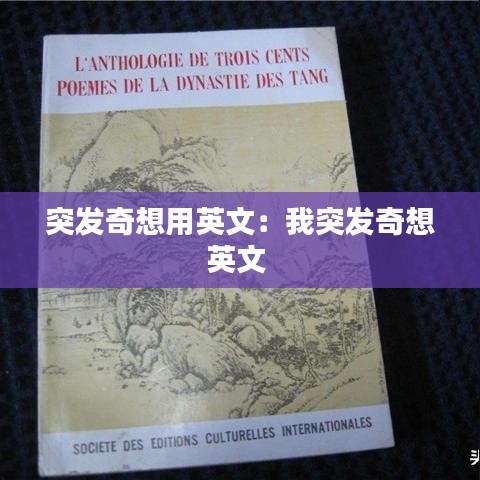Introduction to the Concept of "Spur of the Moment" in English
The phrase "spur of the moment" is a common English expression that captures the essence of a sudden, unexpected decision or action. It describes a situation where someone decides to do something without much prior thought or planning. This concept is often associated with spontaneity and adventure, as it implies a willingness to embrace the unknown and take risks.
Origin and Usage of the Expression
The phrase "spur of the moment" has its roots in the idea of a spur, which is a metal shoe fastened to the heel of a horse's hoof. In the past, a spur was used as a tool to encourage a horse to move faster. Thus, the term came to represent a sudden, impulsive action that propels someone into action. The expression is widely used in both formal and informal contexts to describe a variety of situations.
Examples of Spur of the Moment Actions
One common example of a spur of the moment action is when someone decides to take a road trip without any prior planning. Perhaps they see a beautiful sign advertising a nearby town and suddenly feel the urge to explore. Another example could be a couple who decides to get married after a whirlwind romance, where the decision to marry comes suddenly and without much preparation.
In the workplace, a spur of the moment decision might involve a manager choosing to give an employee a promotion on the spot, recognizing their exceptional performance without going through a formal review process. Similarly, a student might suddenly decide to switch majors in the middle of their academic career, following a sudden interest sparked by a class or a conversation.
The Psychological Aspect of Spur of the Moment Decisions
Psychologically, spur of the moment decisions can be both thrilling and risky. They often arise from a combination of emotions, such as excitement, curiosity, or a desire to break out of routine. These decisions can lead to positive outcomes, such as creating memorable experiences or discovering new opportunities. However, they can also result in negative consequences, such as making impulsive purchases or taking unnecessary risks.
Research suggests that people who are more open to new experiences and less risk-averse are more likely to make spur of the moment decisions. These individuals often have a higher level of emotional intelligence, which allows them to navigate the uncertainty and potential negative outcomes that come with such decisions.
Spur of the Moment in Literature and Media
The concept of spur of the moment decisions is often explored in literature and media. In novels, characters might make sudden decisions that change the course of their lives, leading to dramatic plot twists. In movies, a character might embark on a spontaneous adventure, only to learn valuable lessons along the way. These stories often highlight the unpredictability and excitement of life, as well as the potential for personal growth and change.
Conclusion
In conclusion, the phrase "spur of the moment" is a powerful expression that encapsulates the essence of spontaneous, impulsive action. Whether in personal life, the workplace, or the arts, spur of the moment decisions can lead to a variety of outcomes, some positive and others negative. Embracing the concept of spur of the moment can encourage us to be more open to new experiences and to take risks, which can ultimately lead to personal growth and fulfillment.
转载请注明来自浙江科税通科技发展有限公司,本文标题:《突发奇想用英文:我突发奇想英文 》












 浙ICP备2021040256号-1
浙ICP备2021040256号-1
还没有评论,来说两句吧...